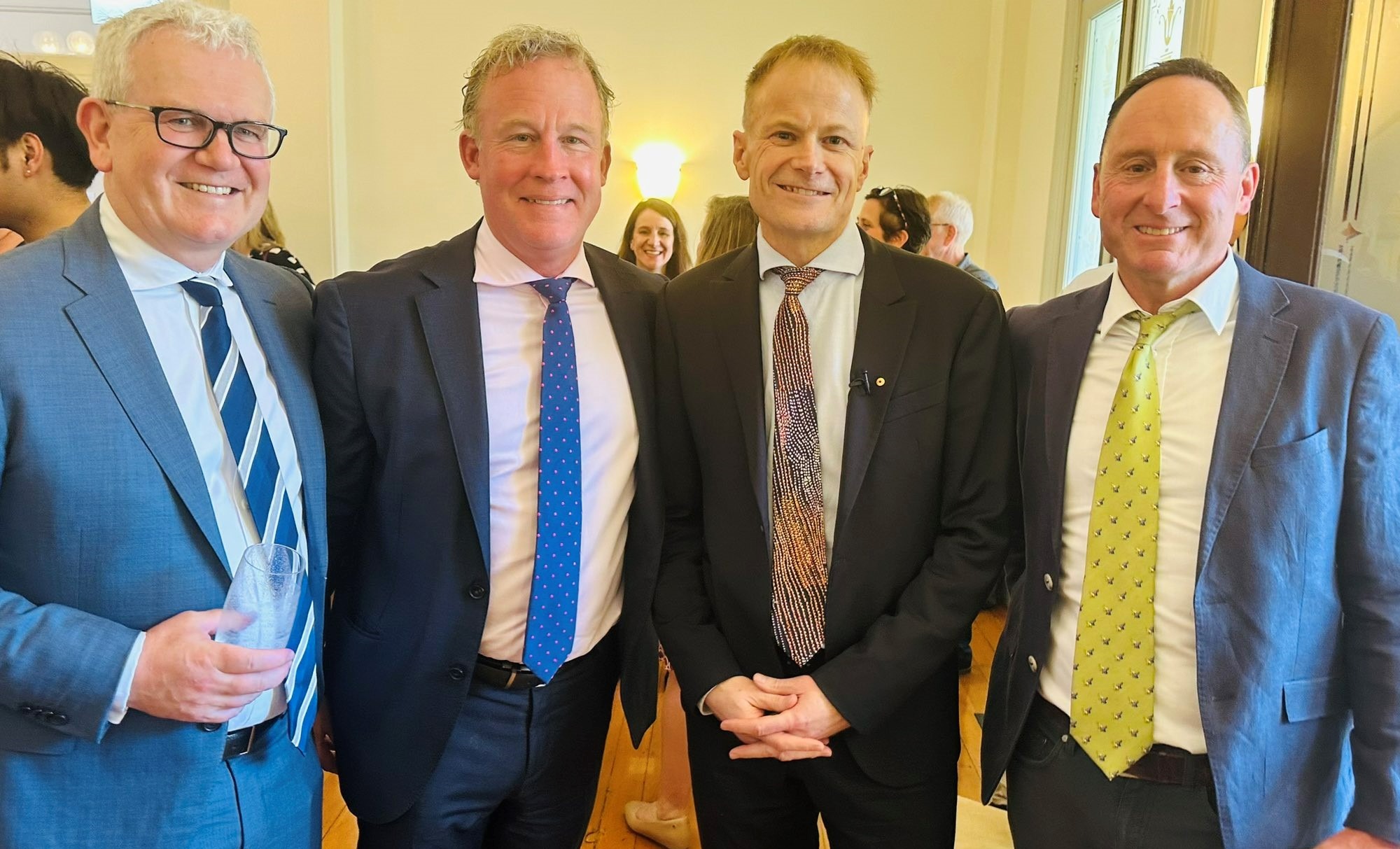World-leading melanoma researcher Professor Richard Scolyer AO, who received the 2021 University of Tasmania Distinguished Alumni Award, is turning his research focus to brain tumours in the hope of curing his own tumour, diagnosed this year.
Professor Scolyer has been at the forefront of major advancements in the treatment of melanoma, saving thousands of lives.
A year to the day since he and colleague Professor Georgina Long, both Co-Directors of the Melanoma Institute Australia (MIA), presented their groundbreaking melanoma research to the National Press Club, the pair presented their early findings from experimental research being applied to Richard himself.
In the recent press club address held on 20 September, titled “Melanoma science in the race against brain cancer. Using a terminal diagnosis as a path for good”, Richard said he hopes to “change things not just for me, but for the field”.
“I became the first brain cancer patient in the world to have had combination neoadjuvant immunotherapy, so before surgery to remove my brain tumour,” he said.
“I am proud to say, that only days ago, I had another world first treatment for my brain cancer….a personalised cancer vaccine with combination immunotherapy, instead of standard treatment. My vaccine is designed to further boost my immune reaction against my brain cancer, to target tumour cells we can’t see and prevent recurrence.”
The novel approach to applying immunotherapy to Richard’s brain cancer has produced exciting results, showing activation of the immune system in the tumour and debunking ideas that medicines can’t cross the blood-brain barrier to enter the brain.
“I’m blown away, as a doctor and a pathologist … it has left me with optimism. I’m thrilled about it,” he said.
"I'm proud that we have contributed to the science in brain cancer."
Prof Richard Scolyer
It is early days in Richard’s experimental treatment, but the pair are calling for big thinking and courage in the cancer research field going forward. They told the press club there were three ideas they wanted to see change in the approach to cancer treatment and research: challenge the paradigm especially regarding the subset of patients that are dying on standard treatments, clinical trial participation needs to be bolstered, and we must embed research into clinical care to generate faster scientific data.
Launceston-born, Professor Scolyer completed a Bachelor of Medical Science in 1987 and a Bachelor of Medicine, Bachelor of Surgery in 1990 at the University of Tasmania.
We wish Richard all the very best with his treatment and novel research approach. Read more about Richard in a feature from our 2021 Alumni Magazine, or follow his journey on Twitter @ProfRScolyerMIA.

Top right image: Professor Richard Scolyer, Co-Medical Director of the Melanoma Institute Australia (MIA)
First published in Alumni and Friends eNews.
If you are a member of the University of Tasmania community and would like to receive this publication, please provide or update your email address.


